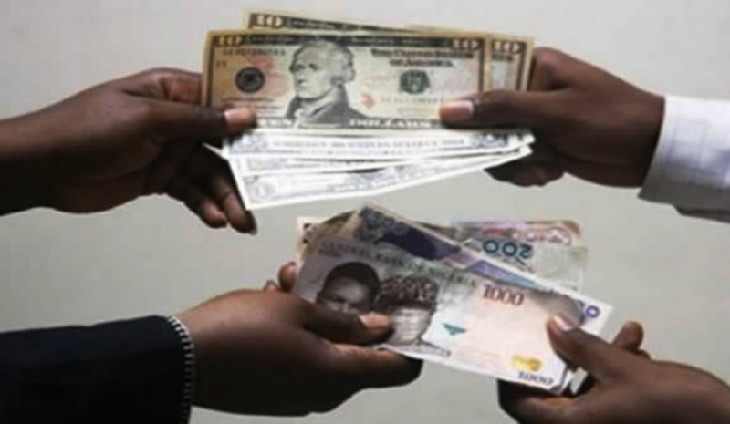Food, forex pressures push inflation to 29%

Soaring food prices and foreign exchange pressures may have pushed up push inflation rate beyond 29 per cent, it was learnt yesterday.
The National Bureau of Statistics (NBS) will today release the Inflation Report.
Intelligence reports by many economic and finance firms surveyed yesterday by The Nation showed that inflation may have risen by between 50 to 80 basis points last month, the highest since August 2005.
But, experts expressed optimism that early gains from the reforms introduced by the government would ease the pressure on Nigerians and put the economy steady path of recovery.
The increase in inflation in December 2023 indicated that average costs of basic living items rose for every month last year.
Ahead of today’s release of the inflation report by the NBS, independent consumer surveys and econometric models indicated that inflation remained unabated, although the momentum of price increases appeared to be slowing down.
The reports indicated that inflation may rise from 28.2 per cent in November 2023 to estimated ceiling of about 29 per cent in December 2023. It had started the year with 21.8 per cent in January 2023.
Analysts at Afrinvest West Africa expected inflation at 29.0 per cent while Financial Derivatives Company (FDC) estimated current inflation at 28.7 per cent.
Experts agreed that the increase in inflation rate was due mainly to naira depreciation, foreign exchange (forex) pressure and the lingering effect of the removal of subsidy on premium motor spirit (PMS), otherwise known as petrol.
FDC noted that while December inflation will be at a record high and raises concern of Nigeria becoming an outlier, Nigeria will likely see moderation in inflation in 2024.
The Bismarck Rewane-led FDC pointed out that “inflation is estimated to decline in 2024”, noting that inflation expectations are more important than historical inflation.
“Though, inflation in Nigeria has increased consistently in 2023, many experts are projecting a significant decline in 2024. According to EIU, inflation in Nigeria is expected to fall to 23.6 per cent in 2024 and 17 per cent in 2025. These projections are not unrealistic, as Nigeria is likely to see a moderation in inflationary pressures in second half 2024,” FDC stated.
Rewane urged the government to back up its revenue reforms with increased fiscal spending and unlocking the economy from several bottlenecks.
According to him, in order to balance the reforms, government should implement two contemporaneous actions, including boosting fiscal spending to increase earnings for businesses and households and to prioritize removing the embedded structural bottlenecks that bookend extreme poverty, constrained growth, and macroeconomic instability.
“Going into 2024, it is imperative for policy communication to be coherent and consistent to avoid the unintended consequences of market reactions to policy inactions or wrong policy therapy,” Rewane advised.
Managing Director, Arthur Stevens Asset Management, Mr. Olatunde Amolegbe, said inflation may continue to rise in the early part of 2024, but this will slow down later in the year.
He said: “I think it will still rise in the first half of the year but at a slower pace since most of the issues contributing to rising inflation seems to be already factored in. The coming on stream of Dangote Refinery should reduce forex demand pressures and rising crude oil price will hopefully improve liquidity.”
He noted that food prices could moderate if farm production improves as on the back of reduced insecurity while consumer resistance on the back of lower disposable income could also contribute to slow rate of inflation growth.
Amolegbe, a former president of Chartered Institute of Stockbrokers (CIS), said: “So, to tackle inflation we need to deal with insecurity, supply chain issues, stabilize forex supply and prices and curb interest rate increases.”
Managing Director, Highcap Securities, Mr. David Adonri, said inflation will reduce in the months ahead.
He said: “Rising inflation is expected to moderate in 2024. The economy will readjust to the new price level precipitated by last year’s market reforms. Coming on stream of local refineries will reduce pressure on forex and hence reduce depreciation of the naira. Nigeria’s inflation is fueled by insecurity which depresses production and forex scarcity which escalates cost of production and imports. Addressing these issues will certainly subdue inflation.”
FDSH Group stated that it expected to see more collaboration between the Central Bank of Nigeria (CBN) and fiscal authorities on inflation, especially in dealing with the non-monetary triggers of inflation, otherwise the bank’s efforts to squeeze liquidity will only yield negative outcomes.
The Group said: “Challenges associated with agricultural productivity, logistics bottlenecks, infrastructure deficit and activities of non-state actors in imposing charges on businesses have implications for inflation in Nigeria, and efforts must be made to address them.
“The CBN must also be aware of its limits in taming inflation using monetary policy, especially given the peculiarities of the Nigerian economy – a large informal economy, a huge population of financially excluded individuals, etc.
“Therefore, constant dialogue with fiscal authorities is required, and we believe that the process of engaging with non-monetary authorities needs to be institutionalised to ensure proper coordination.”
Cordros Capital Group outlined disinflationary trend in the second half of 2024 as the macroeconomic environment improves.
Analysts at Cordros Capital said they expected gradual phasing out of the current impact of PMS subsidy and forex reforms on the non-oil sector, higher crude oil production relative to 2023 levels amid supportive oil prices and forex supply improvement in line with the authorities’ expectations of forex inflows from arrangement with international banks.
“Also, we expect foreign investors’ sentiments to improve next year, given the recent monetary authorities’ actions in sucking financial system liquidity and ensuring naira assets are attractive, even as the government is expecting forex inflows up to $10.00 billion from different sources,” Cordros Capital noted.













